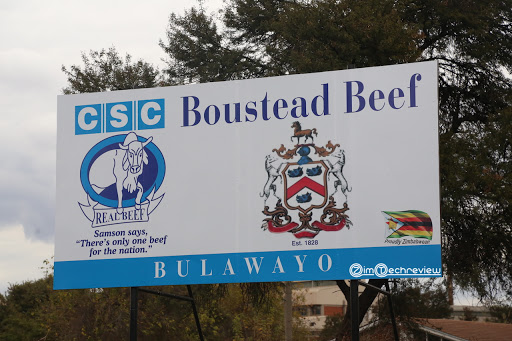‘Strong farmer support must back CSC revival’
THE recent revival of the Cold Storage Company (CSC) must be supported by strong financial backing and technical support for livestock farmers who will provide adequate feed-stock for slaughter, which will enhance the company’s ability to resume exports and employ more workers, former general manager and economist, Mr Eddie Cross, has said.
The Government facilitated the re-opening of the giant Bulawayo-headquartered factory after nearly two decades of closure through roping in a United Kingdom investor, Boustead Beef under a multi-million-dollar deal.
Vice President, Dr Constantino Chiwenga, officially re-opened the revamped giant factory in Bulawayo under a renewed model. CSC-Boustead Beef said it has so far invested US$24 million and targets to slaughter up to 1 500 beasts per day at peak, starting with about 200 per day.
The re-opening of the CSC plant has excited livestock farmers and players in the leather sector who expect the giant beef processing firm to impact positively on several downstream industries.
In an interview Mr Cross said while the re-opening of the beef slaughter and processing plant was commendable, CSC-Boustead Beef requires more financial support towards capacitating livestock farmers, in particular.
“There is no future for the cattle industry without the CSC. The company is critical to the cattle industry and rehabilitating the abattoir alone is not enough.
“The real issue is in finding 700 herd of cattle (for slaughter) a day, or 2 500 herd of a cattle per week to feed into that plant,” said Mr Cross.
“That’s a big job and the commercial cattle herd today is 20 percent less than what it was before. I think solving the problems of CSC needs a much broader approach and we need to have a cattle financial kit and have cattle sale pens in rural areas.
“Basically, we need more financial support to the farmers and young people like you should be able to do cattle farming.”
Mr Cross said during his time as general manager at CSC, their success model was hinged on funding livestock farmers who held pieces of land in strategic areas across the country and the company would avail them with resources through banking facilities. He implored CSC-Boustead Beef to consider doing the same in order to unlock more value for the business.
“We never lost money on that, we ran for years and we used to finance half a million herd of cattle a year. This doesn’t exist anymore,” said Mr Cross.
He also said other CSC subsidiaries in Marondera, Chinhoyi and Masvingo should be rehabilitated and be restored to their past operational mode.
“Masvingo is a small plant and all of these factories were export-registered some years ago but can be revived. I’m actually convinced that CSC can be revived but it needs holistic approach. You have got to support the farmer,” said Mr Cross.
The demise of CSC had spelt doom for many down steam industries including the leather sector as the meat processor used to be the key supplier of raw hides, a key raw material for the tannery producers.
Following the company’s revival, livestock farmers and players in the leather value chain have expressed optimism that the remodelled business would impact positively on their operations.
Bulawayo Leather Cluster secretary-general, Mr Fungai Zvinondiramba, said they were excited about the revival of CSC.
“CSC is very central to the revival of the leather industry because it has a large network to reach out even to rural communities in terms of collection of hides,” he said in a recent interview.
“Also, it has that much-needed capacity to grade hides that will give us the quality we require to manufacture quality shoes, which are more competitive in the local and regional markets.”
Livestock farmer, Mr Donald Khumalo, has said the revival of CSC Boustead Beef is a massive boost for Matabeleland livestock farmers who stand to benefit more and hoped the company will work closely with them.
On the sidelines of the factory re-opening ceremony, CSC investor representative, Mr Nick Havercroft of Boustead Beef said they were confident of receiving support from farmers and downstream industries.
“On our part, we are committed to ensuring smooth operations and that comes with support from communal farmers. We hope to have a beneficial corporation with communal farmers in terms of supply of quality livestock,” he said.
“Downstream industries are set to also benefit from the operations, especially the leather sector. It’s a win-win situation for everyone.”
Value addition and beneficiation is a top priority under the National Development Strategy (NDS1) and Government seeks to capitalise on these to foster rapid economic growth and employment creation in line with its Vision 2030.-chronicle.co.zw










